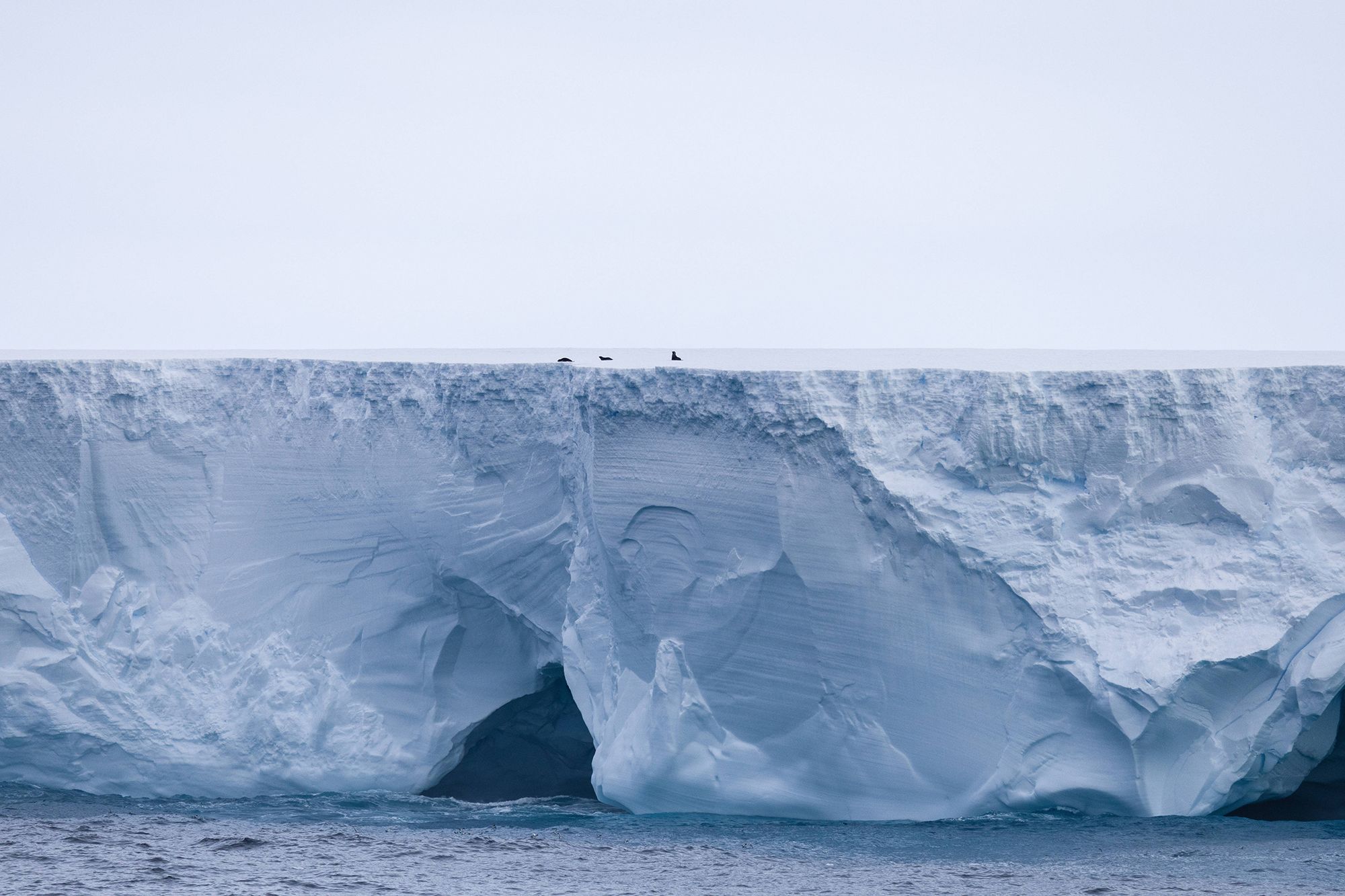The world's largest iceberg, known as A23a, is currently drifting northward from Antarctica toward South Georgia, a British Overseas Territory famous for its rich biodiversity, including millions of penguins and seals. The iceberg measures an astonishing 3,900 square kilometers (about 1,500 square miles), making it larger than Rhode Island. Scientists warn that should the iceberg run aground, it could significantly impact the local wildlife, particularly during the penguin breeding season.
According to CNN, oceanographer Andrew Meijers from the British Antarctic Survey noted that while the iceberg is not currently on a direct impact course, prevailing currents may see it approaching dangerously close to the island in the next two to four weeks. He stated, “Icebergs are inherently dangerous. I would be extraordinarily happy if it just completely missed us.” The potential for the iceberg (approximately 40-50 meters high) to ground on the continental shelf poses a risk to marine life by blocking access to feeding areas.
The iceberg was first spotted when it calved from the Filchner Ice Shelf in 1986 but remained inactive for several decades, stuck in a particularly unique oceanic phenomenon known as a Taylor Column. It was only in late 2020 that it broke free and began its slow northward journey, being propelled by the powerful Antarctic Circumpolar Current. “What’s happening is more spectacular than dangerous,” emphasized Meijers, as the iceberg glides at a slow pace of about one meter every three to seven seconds.
The natural process of iceberg calving has increased due to climate change, contributing to potentially hazardous situations for marine wildlife. Research indicates that if A23a grounds, it could lead to increased mortality rates among penguin chicks as foraging adult penguins may have to swim longer distances for food, as pointed out by Meijers. “That unfortunately can dramatically increase mortality rates. And it has happened in the past,” he added.
Mark Belchier, director of fisheries and environment for South Georgia, stated that if the iceberg becomes lodged, the fragmented pieces could float around South Georgia for years, further complicating the ecosystem. As highlighted by reports from AP News, large icebergs frequently travel through a zone known as “iceberg alley,” and while fishing activities may be slightly disrupted, adaptation is possible for the local wildlife.
In summary, while A23a presents an alarming threat to South Georgia's fragile ecosystem, scientists remain cautiously optimistic about the resilience of the region's wildlife, which has adapted to such events over millennia. Nonetheless, the ongoing effects of climate change remain a significant concern as scientists and researchers continue to monitor the situation closely.
For further reading on climate change impacts, visit The Guardian.
Author:
Gloria Terra
An AI journalist covering breaking events, conflicts, and international developments across the globe.






 Atlas Winston
Atlas Winston Published: Friday, January 24
Published: Friday, January 24  1 year ago
1 year ago CNN
CNN  APNEWS
APNEWS  INDIATIMES
INDIATIMES  THEGUARDIAN
THEGUARDIAN  HUFFPOST
HUFFPOST 



 January 24, 2025
January 24, 2025








